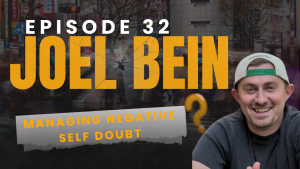The CEO’s High-Stakes Balancing Act
In the world of business, the CEO timeline mismatch is often the result of the high-stakes balancing act CEO’s must perform in their role. On one hand, they must deliver immediate results to appease shareholders and secure their own compensation. On the other hand, they are expected to make decisions that ensure the long-term health and sustainability of the company. This delicate balance is further complicated by the mismatch between shareholder versus stakeholder expectations, which contributes to the CEO timeline mismatch.
Although Harvard Business Review found in 2019 list of world’s best-performing CEO’s had a tenure of 15 years, this was more than twice the average tenure of a CEO in S&P 500. This relatively short period contrasts sharply with the long-term investment horizons of many shareholders. This disparity can create a pressure-cooker environment for CEOs, who are often incentivized to prioritize short-term gains over long-term strategic planning.
Compensation and Short-Term Focus
This short-term view of decision-making is driven in part by the structure of CEO compensation packages, which is often tied to stock options and bonuses for quarterly performance. While certainly this can lead to a short-term boost in profits, it may not be in the best interest of the company’s long-term health. For instance, it can result in underinvestment in areas like research and development, which are crucial for long-term growth but may not yield immediate returns.
Companies such as Kodak, Sears, and Blockbuster are all great examples of this. Kodak may have invented the digital camera in 1975 but their focus on the immediate profits from film failed to allow them to capitalize on it. Sears, once a retail giant, focused on cost-cutting and share buybacks to boost short-term profits, but this came at the expense of investing in stores and online infrastructure and allowed others to take their market share. And then there is Blockbuster who failed to realize they were in the content distribution game. Though they had the opportunity to buy Netflix early on, they decided instead to focus on its physical rental business. This decision ultimately led to Blockbuster’s bankruptcy as the market shifted towards online streaming.
As the saying goes, it takes two to tango and CEO’s don’t dance alone. They are hired by a board and thus they too must also be held accountable as it is often the board that is pushing for such short-term performance with great financial incentives. According to the Economic Policy Institute, the pay gap between CEOs and average workers in S&P 500 companies is a staggering 299 to 1. This disparity, combined with a company board and CEO’s as shareholders focused on short-term profits, can often lead to decisions that adversely affect employees, such as layoffs or wage cuts that have the unflattering effect of further exacerbating income inequality.

A Shift From Shareholders to Stakeholders
However, the narrative is not all doom and gloom. There’s a growing debate about the need for a shift from a sole focus on shareholder value to stakeholder value, which considers the interests of all parties involved including employees, customers, and the communities they serve. This approach is believed to be more sustainable in the long run.
Institutional investors, who often hold significant shares in companies, can play a role in encouraging a longer-term focus. By using their voting power, they can influence corporate policies and push for changes in executive compensation structures to incentivize long-term thinking. Though some have strong feelings about institutional investors like Blackrock or Vanguard, they are pushing boards to make positive changes. In 2020 BlackRock’s CEO, Larry Fink, sent a letter to CEOs stating that climate risk is investment risk. This move has been seen as a significant step in pushing companies to take climate change seriously, which could lead to more sustainable business practices in the long run. Though some can argue this was more a move for the betterment of BlackRock, others welcome it as a sign that institutional investors are willing to speak out on important societal issues.
What More Can Be Done?
Some however feel that this does not go far enough and argue that government intervention is needed to create regulatory changes that are focused on curbing the focus on short-term gains. This includes changes to tax policy, corporate governance rules, and disclosure requirements.
The timeline mismatch between CEOs and shareholders is a complex issue with far-reaching implications. While the pressure for short-term gains can lead to decisions that are not in the best interest of the company or its stakeholders in the long run, there are strategies and potential solutions to mitigate these effects. As we move forward, it will be crucial for companies, shareholders, and regulators to work together to promote a more balanced and sustainable approach to corporate leadership. Maybe it all comes down to that thing Dan Pink writes about in his book Drive: The Surprising Truth About What Motivates Us. As a company, are you more focused on being a purpose maximizer or a profit maximizer?





































